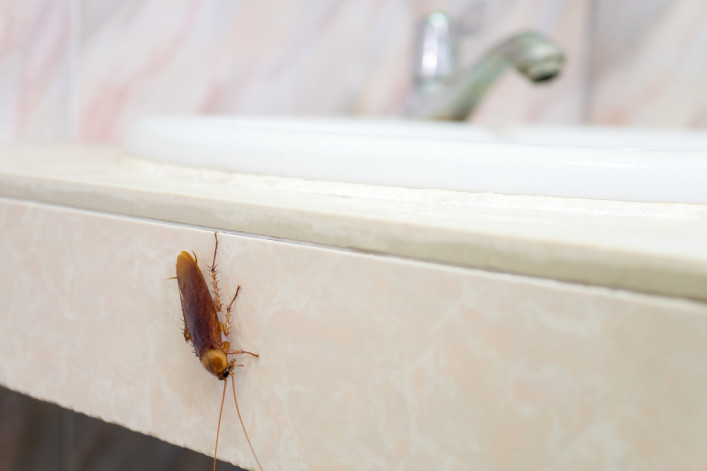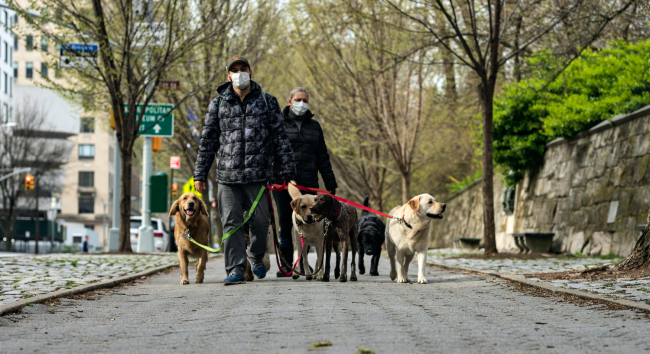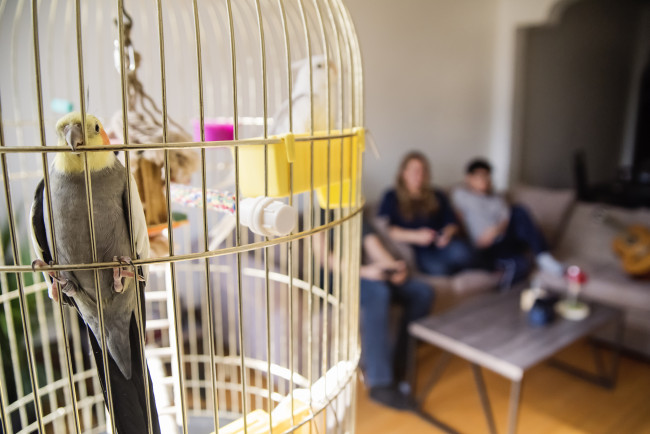Getting rid of pests in your NYC apartment—Brick Underground's best advice

City exterminators say they're not surprised by the increase in roaches and rats during the pandemic—here's how to get rid of them.
iStock
Are you seeing or hearing more pests around your apartment? At our place, in the past few months, we have found a mouse, two cockroaches, and evidence of squirrels. And it turns out we aren't the only ones getting more unwanted company.
As Gothamist reports, exterminators around the five boroughs say they expected an increase in pest problems during the pandemic as residents spent more time at home. New Yorkers are generating more trash, snow has hampered recent garbage pick ups, and many residents are delaying exterminator visits because of concerns about coronavirus exposure.
If you're a renter, it's important to remember that it's a landlord's responsibility to make sure your apartment is pest-free. The Warranty of Habitability ensures you shouldn't have to put up with unlivable conditions—and that includes infestations of rats, mice, roaches and other insects. Sometimes, though, tackling pest problems can feel like an ongoing battle. Read on for our best advice on how to get rid of them.
Roaches and bed bugs
Buying in bulk may be one of the reasons why you're having more unwanted visitors. And they may be coming from the empty apartments in your building. There's been an increase in American roaches (aka waterbugs), which can gain entry through dried-out drains and pipe gaps.
Gil Bloom, president of Standard Pest Management, suggests running water down all drains twice a week—something that may need to be addressed building-wide. He also recommends putting out some monitors, like glue boards, around areas where there's water, like a bathroom, as both an early warning sign and as a trap. Read: "Your neighbors fled the city. They left you their water bugs."
There is some good news when it comes to bed bugs: Incidents of bed bugs have actually gone down during the pandemic. Bloom says this isn't surprising as New Yorkers are traveling less. Bed bugs tend to hitch rides on your luggage and when travel picks up again, he recommends planning ahead to avoid bringing them into your apartment: Use ziplock bags for your clothes in your suitcase; unpack in the bathroom; and keep suitcases out of your bedroom.
For more, preventative measures read: "How to keep bed bugs out of your NYC apartment." For a (somewhat) reassuring survival story read this: "How I got rid of bedbugs without using (too much) pesticide."
Rats and mice
Rodent numbers are up due to changes in their food sources as a result of the pandemic. The arrival of outside dining, although welcomed by many residents, does give rats and mice food and shelter and in some cases warmth thanks to heaters.
To prevent rats and mice getting into your apartment or building, it's all about sanitation and exclusion, Bloom says. Seal garbage containers and make sure they don't have places to hide. Bloom recommends taking a walk around the outside of your place and also checking sewer caps. (Or talk to your management company about this).
Poison can be a go-to solution for rats if you can make sure children and pets will be safe. For more, read: "How to get rid of rats in your NYC apartment or outdoor space."
If you're looking for a trap, a rat-sized one does exist. It's electric, effective, and you can read about it here: "Have a rat problem? This electrified trap could zap it away."
Squirrels and pigeons
Bronx resident Zachariah Mampilly reached out to Brick Underground about the endless battle he is having with squirrels in his 110-year-old property. Even though he seals openings, he says they always seem to find new ways in by chipping away at the wood trim. Bloom points out squirrels are not ground nesters and will go up for safety, so attics and eaves are popular, especially if not in the best condition.
He advises trimming trees to limit lines of access to the building. If you trap a squirrel, know they can get pretty nasty, Bloom says. He points out you cannot legally take a squirrel to a park or large property and let it go without getting written permission from the park or land owner. He points out that taking an animal away from its natural habitat can promote the spread of zoonotic disease—and we all know where that can lead. Read: "Help, I have a wild animal in my apartment! What do I do?"
If your problem is pigeons, the advice is similar: make sure you're not doing anything that actively encourages them to move into your building. For more, read: "Pigeon prevention 101: how to keep your building bird-free."
Mosquitos and other bugs
It's not quite mosquito season but these pests can really hamper your enjoyment of outdoor space. If you've prioritized having a deck or balcony as a result of the pandemic you'll want to know how to keep it insect-free. While it’s probably impossible to completely rid your outdoor space of mosquitos, there are steps you can take to get the situation under control. First off, don't let water accumulate as the spring thaw comes.
Next, explore some tried and tested solutions from bug-repellant planting to high-end gadgets: "Take back your deck! How to win the war with mosquitoes and enjoy NYC outdoor living again."
As for other bugs like food beetles and moths, Bloom advises, "if you see something, save something." Put it in a ziplock bag and have it identified. "Pantry pests are relatively easy to address as long as you have the proper information," he says.
You Might Also Like




























